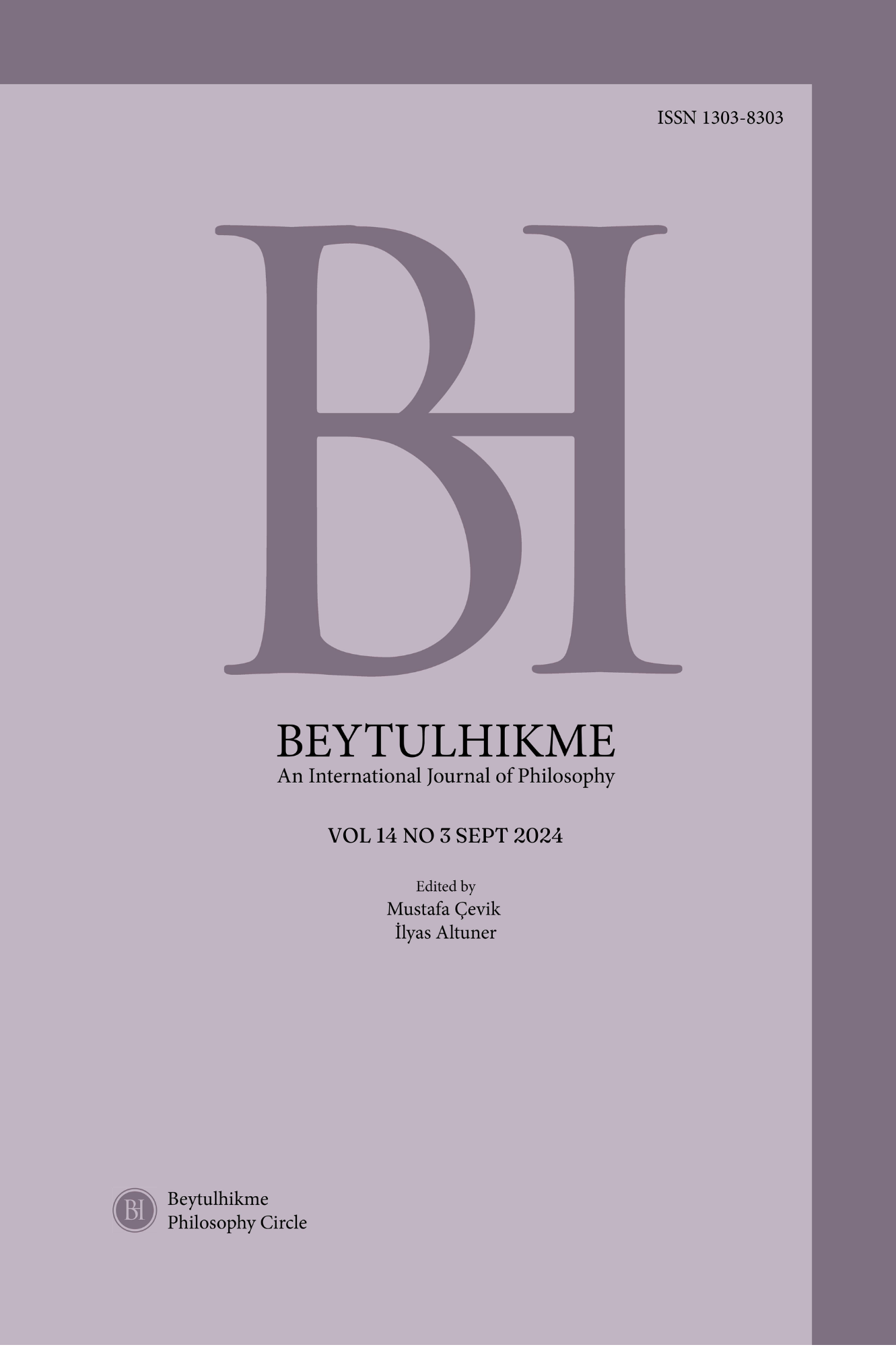Author :
Abstract
Pre-Sokratik felsefeye “varolmayan” (mê on)’ın ontolojisi açısından yöneldiğimizde, kavram iki veçhesiyle; saf mantığın ya da fiziğin konusu olarak bize görünür. “Varolmayan” saf mantıkta “varolan” (to on)’ın diyalektik birlik hâlinde zuhur eden bir mantık kategorisine, fizik dünyada dolu olan cismin hareketini mümkün kılan, dolu olanla karşıt nitelikteki “boşluk”a karşılık gelir. İlk anlamda tartışmaların fitilini ateşleyen kişi Herakleitos’tur. Herakleitosçu öğretide “varolan”la diyalektik bir birlik oluşturan “varolmayan”, oluş dünyasında şeylerin özdeşliğini yitirerek artık oldukları şey olmamasını ifade eder. Buna karşın Ksenophanes’in başını çektiği Elea öğretisinde özdeşliğini koruyamayan oluş dünyasının yarattığı dilsel paradokslardan kurtulmak için saf mantık düzleminde “varolan”la mutlak bir karşıtlık hâlinde kendini gösteren mantıksal bir kategoriyi ifade eder. İkinci anlamda ise “varolmayan”, Atomcu öğretide öne çıktığı gibi fizik dünya hakkında yürütülen tartışmalarda niteliği cisimsellik olan ve “varolan”ın hareketini mümkün kılan “boşluk”un ifadesidir. Pre-Sokratik felsefede Herakleitos’tan Gorgias’a bu açılardan “varolmayan”ın ontolojisine odaklanan makalenin, özellikle Platon ve Aristoteles okumalarına, modern felsefedeki “olumsuzlama” ve “hiçlik” tartışmalarına katkı sunacağı umulmaktadır.
Keywords
Abstract
When we turn to Pre-Socratic philosophy in terms of the ontology of the "non- being" (mê on), the concept appears to us in two aspects; as the subject of pure logic or physics. “Non- being” corresponds to a logical category that emerges in dialectical unity with “being” (to on) in pure logic, and to the “void” that makes the movement of the full body possible in the physical world, which is opposed to the full. In the first sense, the person who ignited the fuse of the discussions is Heraclitus. In the Heraclitian doctrine, the "non- being", which forms a dialectical unity with the " being", states the fact that things lose their identity in the world of formation and are no longer what they are. On the other hand, in the Eleatic doctrine led by Xenophanes, it emphasizes a logical category that manifests itself in absolute opposition to the " being" on the plane of pure logic in order to get rid of the linguistic paradoxes created by the world of formation that cannot maintain its identity. In the second sense, “non- being” is the expression of the “void” whose quality is corporeality and which makes the movement of “being” possible in discussions about the physical world, as it comes to the fore in the Atomist doctrine. It is hoped that the article, which focuses on the ontology of the "non- being" from these perspectives in Pre-Socratic philosophy from Heraclitus to Gorgias, will contribute especially to the readings of Plato and Aristotle, and to the discussions of "negation" and "nothingness" in modern philosophy.





